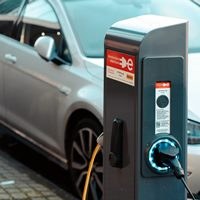(BRUSSELS) – The European Commission proposed Wednesday a three-year extension to current electric vehicle battery rules of origin under the EU-UK Trade and Cooperation Agreement (TCA).
The proposal does not affect the Trade Cooperation Agreement (TCA), says the EU executive, and its wider rules of origin will be applicable as of 2027 as planned.
The Commission is also proposing to set aside additional funding of up to EUR 3 billion to boost the EU’s battery manufacturing industry.
The rules of origin for electric vehicles and batteries under the TCA were designed in 2020 to incentivise investment in the EU’s battery manufacturing capacity. Circumstances not foreseen in 2020 including Russia’s aggression against Ukraine, COVID-19’s impact on supply chains, and increased competition from new international subsidy support schemes have led to a situation where the scaling-up of the European battery ecosystem has been slower than initially anticipated.
Against this backdrop, and in light of concerns from Europe’s automotive, battery and chemical industries, the Commission has adopted its proposal for a Council Decision. At the same time, the Commission reaffirms its political commitment and strategic support to further foster battery production in the EU. To this end, the Commission will provide funding of up to 3 billion, for three years, to the most sustainable European battery manufacturers. This will create significant spillover effects for the entire European battery value chain, notably its upstream segment, as well as support the assembly of electric vehicles in Europe.
The Commission’s proposal includes a clause rendering it legally impossible for the EU-UK Partnership Council to extend this period further, thereby effectively “locking-in” rules of origin in force as of 2027, and specific financial incentives to boost the EU’s battery industry. The Commission will also invite Member States to participate financially in the call for proposals, thereby benefiting from the EU-level project selection service, avoiding the fragmentation of the battery market in the EU and saving on administrative costs.
The proposal will now be discussed in the Council. The decision by the Council will determine the EU’s position in the Partnership Council, the Trade and Cooperation Agreement’s highest decision-making body.



